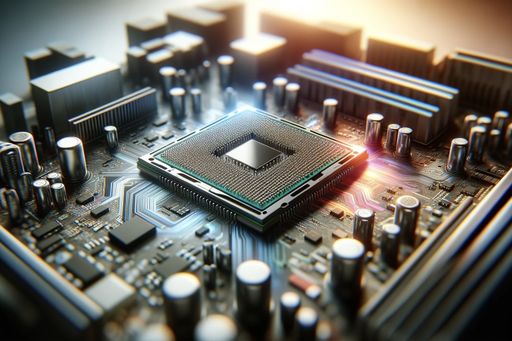Lightmatter: Reinventing Chip Communication and Calculation with Photonic Technologies
Lightmatter, a company founded by three MIT alumni, is revolutionizing chip communication and calculation using photonic technologies.

Rethinking Chip Communication and Calculation
Lightmatter's Passage chip interconnect leverages light's latency and bandwidth advantages to link processors, similar to fiber optic cables that use light for long-distance data transmission. Chip-to-chip communication is crucial for running server farms and AI systems like ChatGPT in cloud computing.
Traditional approaches to improve computer performance, like cramming more transistors onto chips, are reaching their limits. This comes at a time when the demand for computing power is surging due to the rise of artificial intelligence.
Lightmatter's innovative solution involves using both electricity and light for data processing and transport. The company's Envise chip specializes in AI operations, while the Passage interconnect facilitates efficient data transfer between chips by utilizing photons and electrons.
Lightmatter's Vision and Progress
Recognizing the significant energy demand of data centers and AI models, Lightmatter raised over $300 million in 2023 and is now collaborating with major technology companies to showcase its technology.
By enabling platforms comprised of next-generation compute units, Lightmatter aims to address the energy efficiency challenges posed by massive data centers and AI deployments.
The company's unique approach has the potential to transform computing by driving advancements in energy efficiency, performance, and scalability.
From Idea to Startup Success
Before founding Lightmatter, CEO Nicholas Harris PhD '17 worked in the semiconductor industry, where he realized the limitations of the traditional approach to computer performance enhancement.
During his time at MIT, Harris focused on photonic quantum computing and developed silicon-based integrated photonic chips that utilize light instead of electricity for information transmission and processing.
Harris recognized the potential of leveraging his photonic computing systems for deep learning tasks. Teaming up with fellow MIT researchers Darius Bunandar PhD '18 and Thomas Graham MBA '18, the trio launched Lightmatter with their groundbreaking technology.
The Promise of Lightmatter's Technology
Lightmatter's Envise chip combines the strengths of electrons and photons, enabling simultaneous calculations by leveraging different colors of light. This leads to higher operations per area and increased energy efficiency.
The Passage interconnect utilizes light's advantages in latency and bandwidth to link processors, much like fiber optic cables. It allows chips as large as entire wafers to function as a single processor.
Both products prioritize energy efficiency to meet the growing demand for computing power without exponentially increasing power consumption. Lightmatter's technology has the potential to shape a more sustainable and efficient future for computing.



